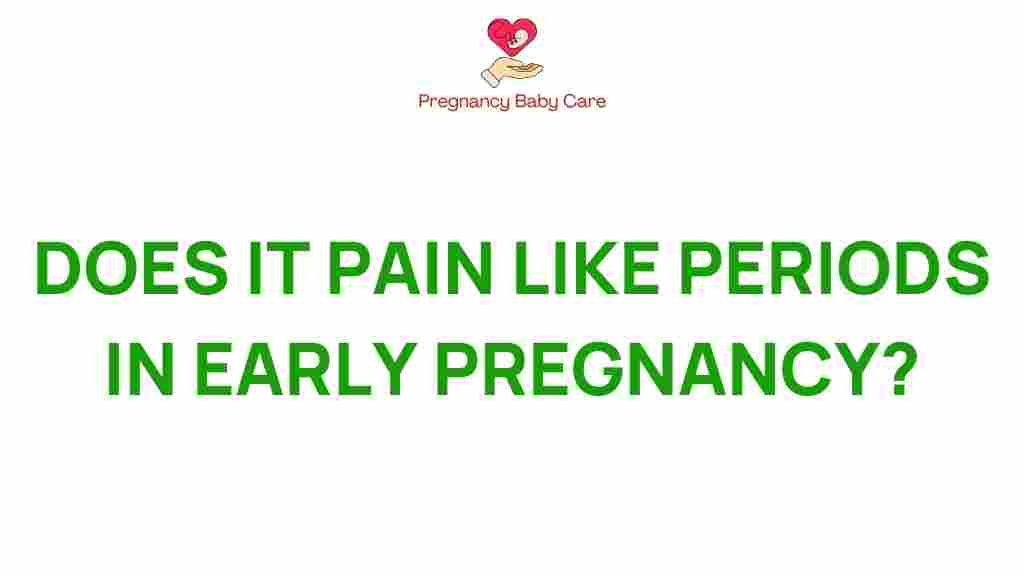Do Early Pregnancy Pains Mirror Period Cramps?
Understanding the nuances of women’s health is crucial, especially when it comes to early pregnancy and menstruation. Many women often wonder if the abdominal pain they experience during early pregnancy mirrors the discomfort of period cramps. This article aims to unravel the mystery surrounding these symptoms, helping you differentiate between them and understand what your body is telling you.
Understanding Early Pregnancy and Period Cramps
Before diving into the comparison between early pregnancy pains and period cramps, it’s essential to grasp what each of these experiences entails.
- Early Pregnancy: This refers to the period within the first 12 weeks of gestation. During this time, women may experience a variety of pregnancy symptoms due to hormonal changes.
- Period Cramps: Also known as dysmenorrhea, these pains occur during menstruation and can range from mild to severe, often caused by the contraction of the uterine muscles.
Common Symptoms of Early Pregnancy
In early pregnancy, women may experience a range of symptoms, including:
- Missed period
- Nausea and vomiting (morning sickness)
- Breast tenderness
- Fatigue
- Frequent urination
- Cramping or discomfort in the lower abdomen
These symptoms can often lead to confusion, particularly when they resemble those of menstruation.
Comparing Abdominal Pain: Early Pregnancy vs. Period Pains
Both early pregnancy and menstruation can lead to abdominal pain, but the nature and cause of this discomfort can differ significantly.
Characteristics of Early Pregnancy Pain
Early pregnancy cramps are usually:
- Less Intense: They tend to be milder compared to period cramps.
- Localized: Often felt on one side of the abdomen, particularly during implantation.
- Accompanied by Other Symptoms: They may occur alongside other pregnancy symptoms like nausea and breast tenderness.
Characteristics of Period Cramps
Conversely, period cramps generally have the following characteristics:
- More Intense: Many women report severe pain that can interfere with daily activities.
- Widespread: Pain is usually felt across the abdomen and can radiate to the back and thighs.
- Regular Timing: Occur cyclically, aligned with the menstrual cycle.
Why Do These Similar Symptoms Occur?
The similarity in symptoms between early pregnancy and menstruation can be attributed to the hormonal changes that occur in both scenarios. During early pregnancy, the body produces increased levels of hormones, particularly progesterone, which can lead to cramping as the uterus begins to adjust.
Common Myths About Early Pregnancy and Period Cramps
There are several myths that can cloud understanding regarding early pregnancy and period cramps. Here are some common misconceptions:
- Myth 1: All abdominal pain in early pregnancy is a sign of miscarriage.
Fact: Mild cramping can be normal in early pregnancy. - Myth 2: You cannot differentiate between pregnancy cramps and menstrual cramps.
Fact: While they can feel similar, there are distinct differences. - Myth 3: If you experience pain, it means something is wrong.
Fact: Discomfort can be a normal part of both menstruation and early pregnancy.
When to Seek Medical Attention
Understanding when to seek medical advice is vital for your health. Although some discomfort is normal, the following symptoms warrant immediate medical attention:
- Severe abdominal pain
- Heavy bleeding (more than a normal period)
- Dizziness or lightheadedness
- Fever
Troubleshooting Early Pregnancy Discomfort
If you are experiencing discomfort in early pregnancy, consider the following troubleshooting tips:
- Rest: Allow your body to relax. Taking breaks can help ease discomfort.
- Hydration: Drink plenty of water to stay hydrated, which can help reduce cramping.
- Warm Compress: Applying a warm compress to your abdomen may provide relief.
- Consult a Healthcare Provider: Always reach out to a healthcare professional if you’re uncertain about your symptoms.
Conclusion
In summary, while early pregnancy pains can mirror period cramps, they often have distinct characteristics and accompanying symptoms. Understanding the differences between these experiences is essential for women’s health. If you find yourself confused about your symptoms, don’t hesitate to consult a healthcare provider for personalized advice.
For more information on pregnancy symptoms and women’s health, check out this informative resource.
Remember, it’s crucial to stay informed and aware of your body, debunk pregnancy myths, and seek help when needed. Knowledge is power when it comes to understanding early pregnancy and your health.
This article is in the category Pregnancy and created by PregnancyBabyCare Team
